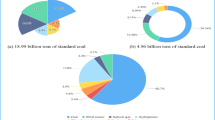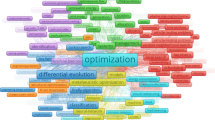Abstract
With the continuous development of a low-carbon economy, the issue of carbon emission regulation has attracted extensive attention. Considering the characteristics of bounded rationality and difference of risk perception in government and enterprises in the carbon emission regulation process, we construct an evolutionary game model based on prospect theory. Using this model, we analyze the evolutionary stability strategies of government and enterprises under the low, medium, and high risk of air quality deterioration. The results show that the cost-benefit ratio of government and enterprise is the threshold to distinguish the grade of air quality deterioration risk. When the risk of air quality deterioration is low, the government tends to be passive regulation and enterprises tend to traditional production. In the situation of medium risk, the strategy choice of government and enterprise is in a circular state. In the situation of high risk, the government tends to be passive supervision, while enterprises tend to choose low-carbon production. At the same time, there is an incentive paradox in the process of regulation of carbon emissions, but in the long run, it is more effective to strengthen the punishment of local governments’ passive regulation than to increase the punishment of enterprises.






Similar content being viewed by others
Data availability
Enquiries about data availability should be directed to the authors.
References
Barberis N, ** LJ, Wang B (2021) Prospect theory and stock market anomalies. J Financ 76:2639–2687
Chang W-Y, Wang S, Song X, Zhong F (2022) Economic effects of command-and-control abatement policies under China’s 2030 carbon emission goal. J Environ Manag 312:114925
Chen Y, Li B, Zhang G, Bai Q (2020) Quantity and collection decisions of the remanufacturing enterprise under both the take-back and carbon emission capacity regulations. Transp Res Part E Logist Transp Rev 141:102032
Chen Y, Yao Z, Zhong K (2022) Do environmental regulations of carbon emissions and air pollution foster green technology innovation: evidence from China’s prefecture-level cities. J Clean Prod 350:131537
Cheng X, Long R, Chen H (2020) A policy utility dislocation model based on prospect theory: a case study of promoting policies with low-carbon lifestyle. Energy Policy 137:111134
Chong D, Sun N (2020) Explore emission reduction strategy and evolutionary mechanism under central environmental protection inspection system for multi-agent based on evolutionary game theory. Comput Commun 156:77–90
Clarkson PM, Li Y, Richardson GD (2004) The market valuation of environmental capital expenditures by pulp and paper companies. Account Rev 79:329–353
De Angelis R (2021) Circular economy and paradox theory: A business model perspective. J Clean Prod 285:124823
Deng G, Chen J, Liu Q (2022) Influence mechanism and evolutionary game of environmental regulation on green port construction. Sustainability 14:2930
Dong H, Liu W, Liu Y, **ong Z (2022) Fixed asset changes with carbon regulation: the cases of China. J Environ Manag 306:114494
Edenhofer O, Seyboth K (2013) Intergovernmental panel on climate change (IPCC). In: Shogren JF (ed) Encyclopedia of Energy, Natural Resource, and Environmental Economics. Elsevier, Waltham, pp 48–56
Edwards KD (1996) Prospect theory: A literature review. Int Rev Financ Anal 5:19–38
Hasan MR, Roy TC, Daryanto Y, Wee H-M (2021) Optimizing inventory level and technology investment under a carbon tax, cap-and-trade and strict carbon limit regulations. Sustain Product Consum 25:604–621
Hu K, Shi D (2021) The impact of government-enterprise collusion on environmental pollution in China. J Environ Manag 292:112744
Jiang B, Wang X, Xue H et al (2020) An evolutionary game model analysis on emission control areas in China. Mar Policy 118:104010
Kahneman D (1979) Prospect theory: an analysis of decisions under risk. Econometrica 47:278
Kang K, Zhao Y, Zhang J, Qiang C (2019) Evolutionary game theoretic analysis on low-carbon strategy for supply chain enterprises. J Clean Prod 230:981–994
Kober R, Thambar PJ (2021) Paradoxical tensions of the COVID-19 pandemic: a paradox theory perspective on the role of management control systems in hel** organizations survive crises. Account Audit Account J 35:108–119
Liao N, Wei G, Chen X (2022) TODIM method based on cumulative prospect theory for multiple attributes group decision making under probabilistic hesitant fuzzy setting. Int J Fuzzy Syst 24:322–339
Liu Z, Qian Q, Hu B et al (2022) Government regulation to promote coordinated emission reduction among enterprises in the green supply chain based on evolutionary game analysis. Resour Conserv Recycl 182:106290
Lu J, Sun X (2021) Carbon regulations, production capacity, and low-carbon technology level for new products with incomplete demand information. J Clean Prod 282:124551
Najm S (2019) The green paradox and budgetary institutions. Energy Policy 133:110846
Porter ME, Van der Linde C (1995) Toward a new conception of the environment-competitiveness relationship. J Econ Perspect 9:97–118
Shen J, Gao X, He W et al (2021) Prospect theory in an evolutionary game: construction of watershed ecological compensation system in Taihu Lake Basin. J Clean Prod 291:125929
Song X, Shen M, Lu Y et al (2021) How to effectively guide carbon reduction behavior of building owners under emission trading scheme? An evolutionary game-based study. Environ Impact Assess Rev 90:106624
Su Y, Zhao M, Wei G et al (2022) probabilistic uncertain linguistic EDAS method based on prospect theory for multiple attribute group decision-making and its application to green finance. Int J Fuzzy Syst 24(3):1318–1331
Tuofu H, Changhao H, Qingyun H (2022) A coordination analysis of stakeholder interests on the new subsidy policy of hydrogen fuel cell vehicles in China: from the perspective of the evolutionary game theory. Int J Hydrog Energy. https://doi.org/10.1016/j.ijhydene.2022.02.218
Wang W, You X, Liu K et al (2020) Implementation of a multi-agent carbon emission reduction strategy under the chinese dual governance system: an evolutionary game theoretical approach. Int J Environ Res Public Health 17:8463
Wang Q, Li B, Chen B et al (2021) Implication of take-back and carbon emission capacity regulations on remanufacturing in a competitive market. J Clean Prod 325:129231
Xu L, Di Z, Chen J (2021) Evolutionary game of inland ship** pollution control under government co-supervision. Mar Pollut Bull 171:112730
Yang Y, Yuan Z, Yang S (2022a) Difference in the drivers of industrial carbon emission costs determines the diverse policies in middle-income regions: A case of northwestern China. Renew Sustain Energy Rev 155:111942
Yang Z, Shi Q, Lv X, Shi Q (2022b) Heterogeneous low-carbon targets and energy structure optimization: does stricter carbon regulation really matter? Struct Chang Econ Dyn 60:329–343
Zeng Y, Cai X, Feng H (2022) Cost and emission allocation for joint replenishment systems subject to carbon constraints. Comput Ind Eng 168:108074
Zhang W, He L, Yuan H (2021) Enterprises’ decisions on adopting low-carbon technology by considering consumer perception disparity. Technovation. https://doi.org/10.1016/j.technovation.2021.102238
Zhao P, Deng Q, Zhou J et al (2021) Optimal production decisions for remanufacturing end-of-life products under quality uncertainty and a carbon cap-and-trade policy. Comput Ind Eng 162:107646
Zhu X, Zuo X, Li H (2021) The dual effects of heterogeneous environmental regulation on the technological innovation of Chinese steel enterprises—Based on a high-dimensional fixed effects model. Ecol Econ 188:107113
Funding
This study was funded by Shanghai philosophy and social Science planning project (Grant Number 2020BGL012).
Author information
Authors and Affiliations
Corresponding author
Ethics declarations
Conflict of interest
The authors declare that they have no conflict of interest.
Additional information
Publisher's Note
Springer Nature remains neutral with regard to jurisdictional claims in published maps and institutional affiliations.
Rights and permissions
Springer Nature or its licensor holds exclusive rights to this article under a publishing agreement with the author(s) or other rightsholder(s); author self-archiving of the accepted manuscript version of this article is solely governed by the terms of such publishing agreement and applicable law.
About this article
Cite this article
Sun, H., Gao, G. & Li, Z. Evolutionary game analysis of enterprise carbon emission regulation based on prospect theory. Soft Comput 26, 13357–13368 (2022). https://doi.org/10.1007/s00500-022-07527-5
Accepted:
Published:
Issue Date:
DOI: https://doi.org/10.1007/s00500-022-07527-5




